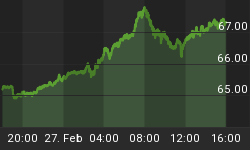Below you can find a recap and extension of my post-CPI tweets. You can follow me @inflation_guy or sign up for email updates to my occasional articles here. Investors with interests in this area be sure to stop by Enduring Investments.
- core CPI +0.157%, so it just barely rounded to +0.2%. Still an upside surprise. Y/Y rose to 1.69%, rounding to 1.7%.
- y/y headline now +0.0%. It will probably still dip back negative until the gasoline crash is done, but this messes up the "deflation meme"
- (Although the deflation meme was always a crock since core is 1.7% and rising, and median is higher).
- Core ex-housing +0.78%. Still weak.
- Core services +2.5%. Core goods -0.5%, which is actually a mild acceleration. So the rise in core actually came from the goods side.
- Accelerating major cats: Apparel, Transp. Decel: Food/Bev, Housing, Med care, Recreation, Other. Unch: Educ/Comm. But lots of asterisks.
- Shelter component of housing rose back to 3% (2.98%) y/y; was just fuels & utilities dragging down housing.
- Primary rents: +3.54% y/y, a new high. Owners' Equiv Rent: 2.69%, just off the highs.
- In Medical Care, Medicinal Drugs 4.13% from 4.16%, but pro services +1.47 from +1.71 and hospital services 3.28% from 4.08%.
- In Education and Communication: Education decelerated to 3.5% from 3.7%; Communication accel to -2.2% from -2.3%.
- 10y breakevens +3bps. Funny how mild surprises (Fed, CPI) just run roughshod over the shorts who are convinced deflation is destiny.
- No big $ reaction. FX guys can't decide if CPI bullish (Fed maybe changes mind and goes hawkish!) or bearish (inflation hurts curncy).
- Here's my take: Fed isn't going to be hawkish. Maybe ever. So this should be a negative for the USD.
This CPI report was a smidge strong, but just a smidge. The market was looking for something around 0.12% or so on core, and instead got 0.16%. To be sure, this is another report that shows no sign of primary deflation, but still it amazes me that inflation breakevens can have such a significant reaction to what was actually just a mild surprise. That reaction tells you how pervasive the "deflation meme" has become - the notion that the economies of the world are headed towards a deflationary debt spiral. I am not saying that cannot happen, but I am saying that it will not happen unless somehow the central banks of the world decide to stop flushing money into the system. And honestly, I see no sign whatsoever that that is about to happen.
As I wrote last week, it should be no surprise that this is a dovish Fed that will perpetually look for reasons to not tighten, and will do so only when the market demands it. My guess is that will happen once inflation, breakevens, and rates rise, and stocks fall. And this doesn't look imminent.
Outside of housing, core inflation still looks soft. But housing inflation is accelerating further, as has been our core view for some time. The chart below (data source: Bloomberg) shows the y/y change in primary rents is at 3.54%. The median in primary rents for the period for 1995-2008 (the 13 years leading up to the crisis) was 3.20%. And during that time, core inflation ex-housing was 1.72% (median).

Like most data, you can use this to argue two diametrically-opposed positions. You might argue that the Fed's loose money policy has helped re-kindle a bubble in housing, as inflation in rents of 3.54% with other core prices rising at 0.78% suggests that housing is in a world of its own. Therefore, the Fed ought to be removing stimulus, and tightening policy, to address the bubble in housing (and the one in equities) and to keep that bubble from bleeding into other markets and pushing general prices higher. But the flip side of the argument is that core inflation outside of housing is only 0.78%, so therefore if the FOMC starts removing liquidity then we may have primary deflation, ex housing. Accordingly, damn the torpedoes and full steam ahead on easing.
The data itself can be used right now to make either argument. Which one do you think the Fed will make?
Follow-up question: given that the Fed has historically one of the worst forecasting records imaginable, which argument do you think is actually closer to correct?
You can follow me @inflation_guy!
Enduring Investments is a registered investment adviser that specializes in solving inflation-related problems. Fill out the contact form at http://www.EnduringInvestments.com/contact and we will send you our latest Quarterly Inflation Outlook. And if you make sure to put your physical mailing address in the "comment" section of the contact form, we will also send you a copy of Michael Ashton's book "Maestro, My Ass!"















